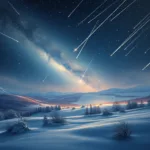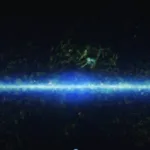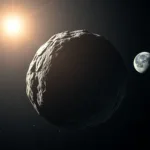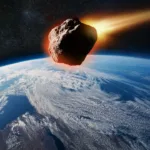astronomy
Southern Delta Aquariids Tonight!
The Southern Delta Aquariidsare a meteor shower visible from the middle of July to mid August yearly with peak activity around July 29 to 30th.
The meteor shower’s origin is not fully known or, for that matter, known with certainty. A probable source is Comet 96P Machholz.
Some, in the past, thought that it probably originated from the Marsden and Kracht Sungrazing comets.
The Delta Aquariids get their name because their radiant appears to lie in the constellation Aquarius, near one of the constellation’s brightest stars, Delta Aquarii.
- Stargazing Delight: Catch the Ursid Meteor Shower This Sunday Morning!As we cozy up to the end of another year, a delightful celestial event is gearing up to grace our skies: the Ursid meteor shower! Set to peak in the early morning hours of Sunday, December 22, this final meteor shower of the year offers a charming opportunity for some stargazing, even amidst the hustle… Read more: Stargazing Delight: Catch the Ursid Meteor Shower This Sunday Morning!
- NEOWISE, the NASA mission that cataloged objects around Earth for over a decade, has come to an endToshi Hirabayashi, Georgia Institute of Technology and Yaeji Kim, University of Maryland The NASA project NEOWISE, which has given astronomers a detailed view of near-Earth objects – some of which could strike the Earth – ended its mission and burned on reentering the atmosphere after over a decade. On a clear night, the sky is… Read more: NEOWISE, the NASA mission that cataloged objects around Earth for over a decade, has come to an end
- A Close Encounter: Asteroid 2006 WB Zooms Past Earth TomorrowAs we gaze up at the night sky, pondering the vastness of the universe, an intriguing event is set to unfold: a football field-sized asteroid is making its way past Earth tomorrow. Named 2006 WB, this celestial traveler is estimated by NASA’s Jet Propulsion Laboratory (JPL) to be about 310 feet across, although its size… Read more: A Close Encounter: Asteroid 2006 WB Zooms Past Earth Tomorrow
- Near-Earth Object 2024 UQ: A Close Call from the CosmosIn a remarkable demonstration of both the unpredictability of space and the extraordinary capabilities of modern astronomical detection, a small asteroid, designated 2024 UQ, recently made headlines after it struck Earth just hours after being identified. This event, which took place on October 22, 2024, marks the third “imminent impactor” recorded this year, highlighting the… Read more: Near-Earth Object 2024 UQ: A Close Call from the Cosmos




